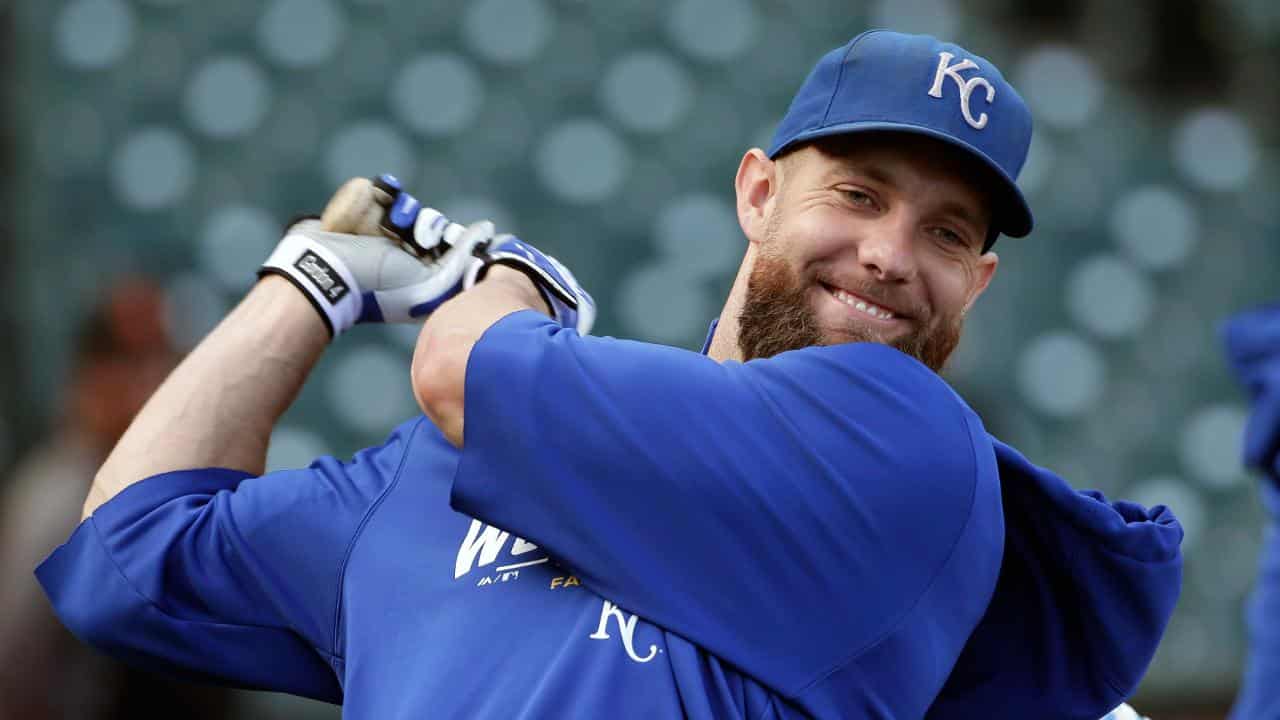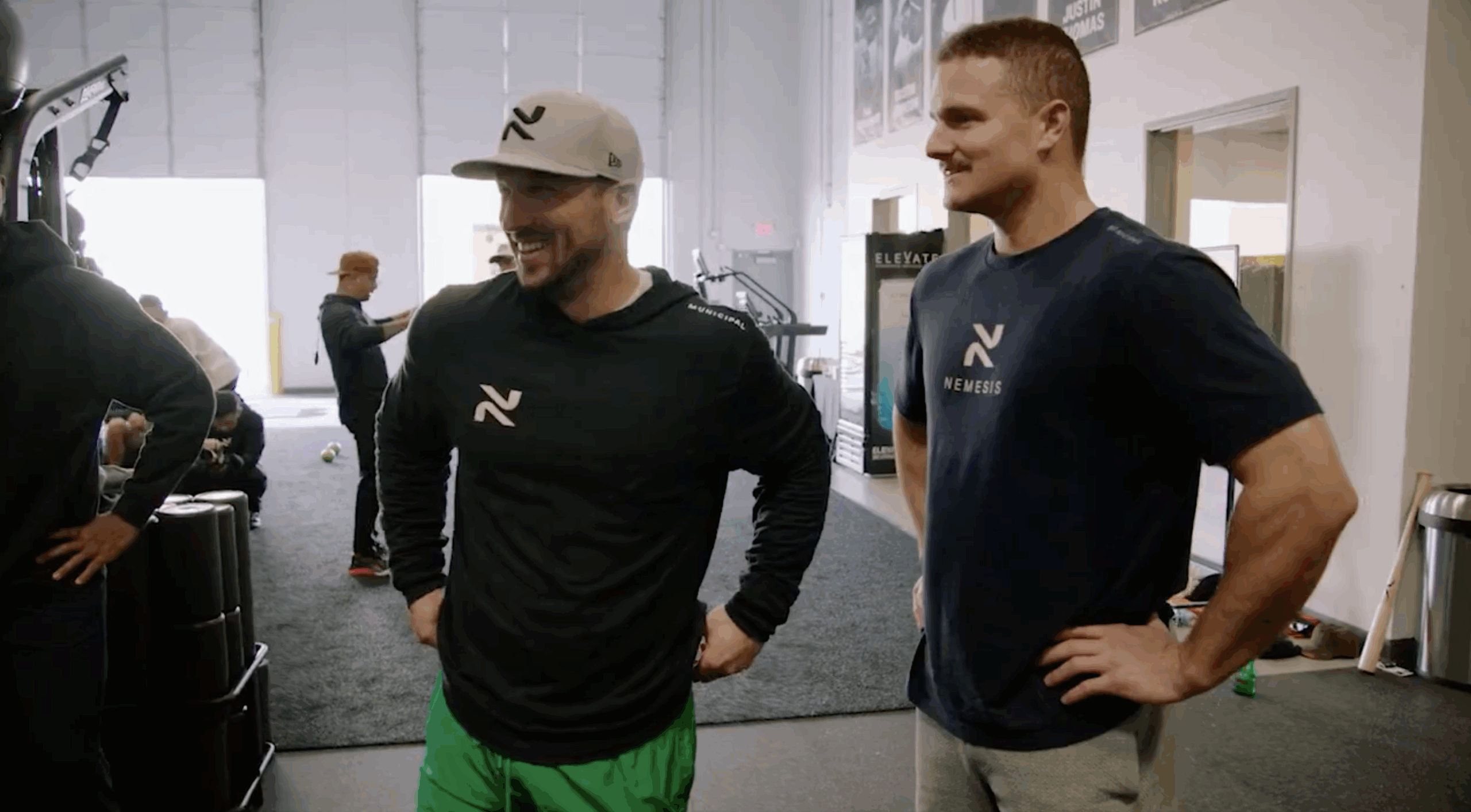
Is Alex Gordon More Valuable to the Cubs Than Jason Heyward?
For years now, we’ve heard that the Cubs don’t want to pay a premium for past performance, a mantra that too often leads to the notion that signing a player who’s summited the age-30 hill is a bad idea. But what if looking at it that way is taking too narrow an approach? After all, not all age curves are the same and not all performance is either linear or parallel. Sure, there’s a general degradation of skill that comes with age, but not every player begins his descent from the same altitude.
As such, I was doing some really interesting reading this weekend regarding Alex Gordon and the idea that signing the 32-year-old left fielder to a $100+ million contract might actually be a bargain. The first such argument came from FanGraphs’ Craig Edwards, who did a little predictive work based on comps.
Gordon is a good player, but no team is buying his fantastic last five years, but rather the next five, and his age-32 through age-36 seasons should be less impressive than the five which have preceded them. Even with those limitations, it’s possible that the market is slightly undervaluing Gordon’s potential value.
Given his age, Gordon’s recent years are more likely to be indicative of his current abilities than his struggles more than a half-decade ago. As a result, I looked for corner outfielders within five WAR of Gordon’s 25.1 WAR from their age-27 through their age-31 seasons who also recorded a plate-appearance total within 20% of Gordon’s mark of 3,176. Then I looked at those, like Gordon, who had a positive defensive value. After removing players not within three wins above replacement of Gordon’s 9.4 during the age-30 and age-31 seasons, eight players [Ichiro Suzuki, Dwight Evans, Jose Cruz, Sammy Sosa, Tony Oliva, Alfonso Soriano, and Felipe Alou] remained.
The group as a whole loses on average about a win on offense and a win on defense per season over the course of the five years, but given the group’s starting place (about five wins per season, in each case) remained roughly three-win players over their age-32 to age-36 season. Pretty impressive. Taking the average of that group at 15.4 WAR and using the cost of a win at $8 million along with 5% inflation reveals a value of roughly $136.5 million over the next five years.
Estimates for Gordon’s forthcoming contract generally fall at 5 years and anywhere from $90 million to $105 million, give or take a few million. While that may seem like a lot, Edwards estimates the former(?) Royal to be worth about 12.5 WAR over the next 5 seasons. Accounting for inflation in the value of individual wins, that puts Gordon’s worth at just over $108 million in that span. So while his performance will diminish over time, it’ll still be more than enough to justify even a nine-figure deal.
Heyward, on the other hand, is expected to command as much as 10 years and $200 million, basically double the high end for Gordon. Both are defense-first outfielders who would be marked upgrades over what the Cubs saw in 2015 out there. But where Gordon figures to be a depreciating asset, Heyward may still have his best days ahead of him. Even if he has plateaued, it’s likely he’ll maintain a higher annual WAR total over the next 5 years, not to mention the 5 after that.
The aging curve Edwards employed goes like this: +0.25 WAR/yr (18-27), 0 WAR/yr (28-30),-0.5 WAR/yr (31-37),-0.75 WAR/yr (> 37). Even going conservative and factoring for no change in Heyward’s 6.0(!) WAR from 2015 over the next four years, followed by subsequent drops of 0.5 WAR in the six years thereafter, we’re looking at a total of 49.5 WAR. At an $8 million/win value, that’s $396 million, and that’s without factoring in the 5% inflation Edwards figured in the Gordon example.
Okay, you’re right, estimating consecutive 6-WAR seasons to close out his 20’s probably isn’t “conservative.” So what if we dial it back and say that Heyward has already peaked and that he’s worth an average of only (only!) 4 WAR per year over the next decade. That’s still a value of $320 million without accounting for inflation. Even going with the most conservative approach possible, Heyward appears to be worth far more than Gordon, both short- and long-term. But value isn’t just what the player brings to the team, it’s what the team is willing to invest in the player.
While a roster filled with aging assets isn’t desirable, neither is a pact that could quickly become an albatross should things break the wrong way. Gordon’s deal would be coming off the books at a time when the Cubs figure to coming into a bit of cash from their new network, cash that they’ll need in order to extend some of the young players who will be hitting free agency right around that same time. A ten-year deal with Heyward offers no such reprieve.
So which is a better fit? Andrew Felper of BP Wrigleyville addressed that topic, at least in terms of Alex Gordon’s pros and cons. But Felper does sneak in a bit about Heyward as well:
Gordon is a very good hitter and the league’s best defensive left fielder. A five-win player, he would no doubt improve the Cubs, a team with a playoff roster even without him. Despite his age, there has been no reason to believe he has begun his decline and will not be the same player in 2016.
Having said all that, it seems unlikely Gordon will sign with the Cubs. Though it’s still early in the free-agent process, some experts have him pegged as returning to the Royals. Would the Cubs go to $180-200 million with Heyward before they went to $100 million with Gordon? That seems dubious.
I’m inclined to view this in the same manner. If we assume a context-neutral perspective, Jason Heyward is clearly worth more and would likely be a better asset in terms of his play over the next 10 years. But $200 million adds quite of bit of nuance and I don’t see the Cubs writing that check, massive return value be damned. So Gordon, while probably not worth as much in terms of WAR over the next 5 seasons, would be a better fit from a financial standpoint, much the same way my wife and I bought an inexpensive washer/dryer set a few years back.
Sometimes you just need stay cheaper in the short term so as to avoid strapping yourself to an obligation that could eventually turn into a lead balloon down the road. Don’t get me wrong, I think Jason Heyward would look great patrolling right field at Wrigley for the next decade. I just don’t believe the Cubs are willing to meet market value for him (I’m not alone in thinking they’re a long shot to sign him, either) and that they see Gordon as the more viable option at this point.
That said, whether Gordon wants to leave the only team he’s ever know remains to be seen. There’s still plenty of time before this all shakes out and I’m interested to see where the market for these players ends up.

